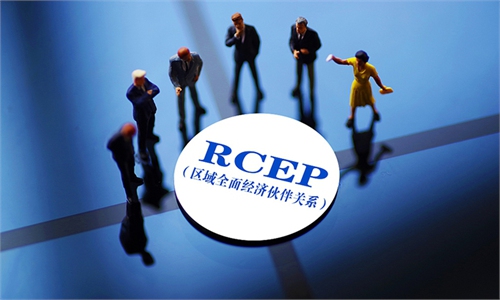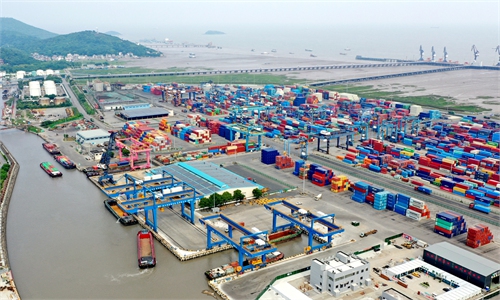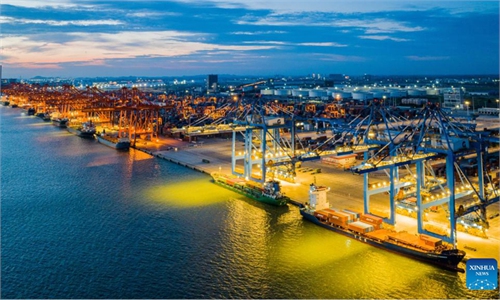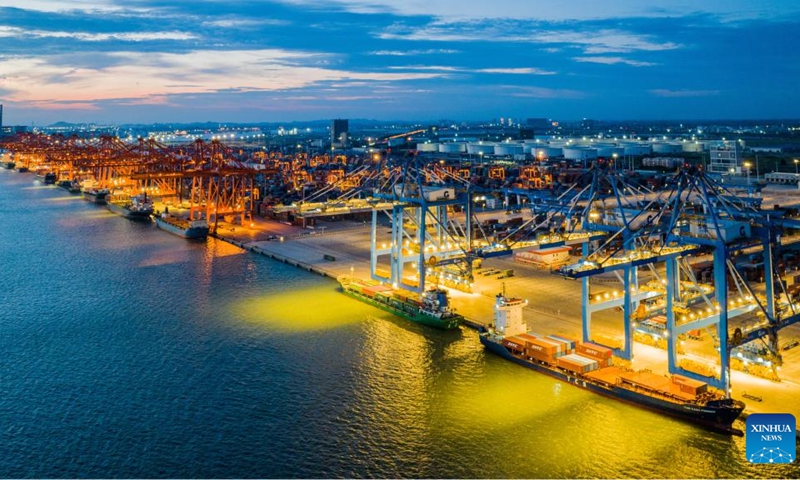
Aerial photo taken on Sept. 13, 2022 shows the night view of Qinzhou Port in Qinzhou, south China's Guangxi Zhuang Autonomous Region. After 30 years of development, the Qinzhou Port has been constructed into an international sea-rail intermodal container terminal, operating more than 60 container service routes with a connection to more than 200 ports in over 100 countries and regions around the world.(Photo: Xinhua)
Trade enterprises' confidence has increased in the third quarter, with revenues and profits seeing quarter-on-quarter growth. This is among the effects of China's policy packages aimed at stabilizing foreign trade and investment, as showed in a trade survey report by the China Council for the Promotion of International Trade (CCPIT) released on Thursday.
The report addressing the general situation of China's foreign trade in the third quarter showed that confidence of 45.1 percent of foreign trade enterprises gradually recovered, and 30.31 percent of foreign trade enterprises are expected to achieve year-on-year growth in annual trade volume, which is 4.09 percentage points higher than that in the second quarter.
Large- and medium-sized enterprises are more optimistic about the foreign trade situation for 2022, while small- and micro-sized enterprises' expectations, although less strong, have improved from the second quarter.
The export value and profit of foreign trade enterprises have both improved. Trade volume of 22.69 percent of enterprises increased month-on-month, and profits of 19.52 percent of enterprises surged.
According to the report, ASEAN has become the largest source market of foreign trade orders in China, especially with enterprises' deeper understanding of the Regional Comprehensive Economic Partnership (RCEP).
In the third quarter, the top three main source markets of foreign trade enterprises' new orders were ASEAN, the EU and the US, accounting for 30.6 percent, 30.55 percent and 25.29 percent, respectively.
"Since late August, we have distributed questionnaires to foreign trade enterprises around the country. In the survey, we found that the effects of policy packages for economic stabilization and foreign trade stabilization began to show in the third quarter," Sun Xiao, spokesperson of CCPIT, said on Thursday during a press briefing.
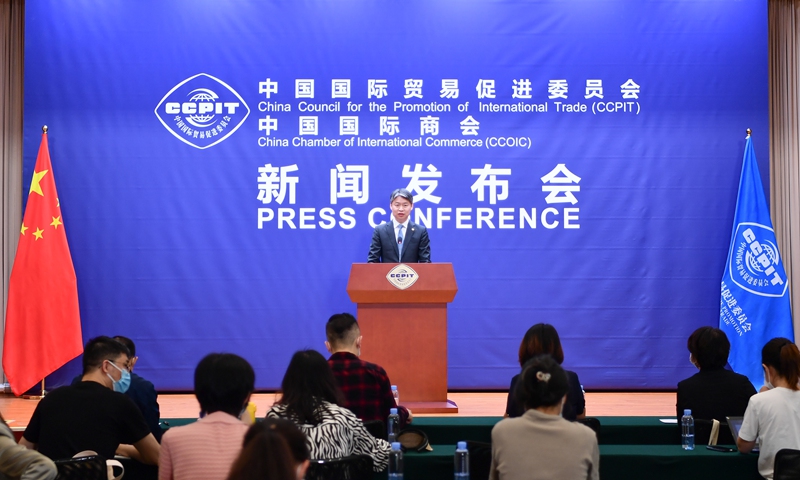
Sun Xiao, spokesperson for the China Council for the Promotion of International Trade (CCPIT) Photo: courtesy of CCPIT
In the first half of the year, problems of freight rates, energy, capital and exchange rates, which were reported by enterprises, were significantly alleviated in the third quarter, said Sun.
On the whole, the confidence and expectations of Chinese foreign trade enterprises have increased significantly, and they continue to show relatively strong resilience, Sun noted.
The spokesperson also detailed the difficulties facing foreign trade enterprises, such as shrinking external demand, insufficient orders in hand, high comprehensive costs, repeated epidemics, and increasing economic and trade frictions.
According to the CCPIT survey, 60.02 percent of enterprises said that the decline in orders was the biggest difficulty; 51.83 percent of enterprises felt the diversion of orders; 56.22 percent of enterprises thought that the cost of raw materials increased, and 47.68 percent of enterprises reflected the impact of the epidemic on production.
The expectation of enterprises is to accelerate the resumption of offline exhibitions in China, actively participate in overseas exhibitions, and make cross-border personnel flow more convenient.
Enterprises also called for training courses or consultation services on the use of preferential policies of free trade agreements to help them effectively cope with international economic and trade friction, the CCPIT report noted.
Global Times
